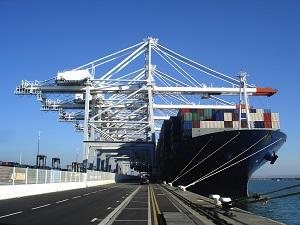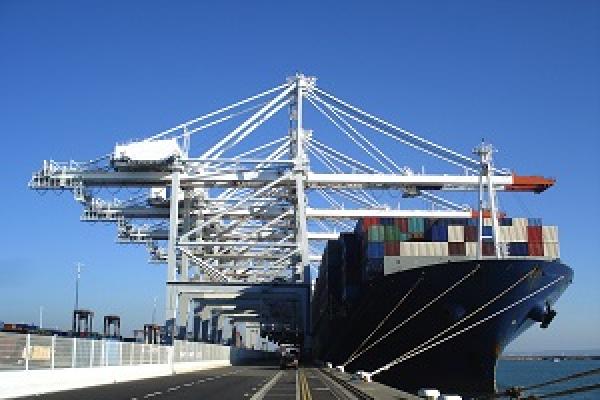
Darren Heppel
Published: May 30, 2018
Image


A recent claim presented at court in France has led to a review of the presumed liability of a carrier under French law and the evidential requirements necessary to establish and rebut such presumption of liability.
The subject case concerned a 40’ laden reefer container shipped from China to Le Havre; for which the Member had issued a port-to-port B/L. On discharge at Le Havre the Equipment Interchange Receipt “EIR OUT” was issued clean with no operating problems reported by the terminal.
The inland transportation from the terminal to the French consignees’ premises, had been arranged by the cargo interests who picked up the container and returned the empty unit the next day following the unloading of the cargo.
On devanning the cargo, reserves were made on the inland haulier's waybill but no reserves were notified to the Member in its capacity as ocean carrier. Instead, five days after delivery, the Member received an invitation to attend a joint survey. This invitation was received outside the three day notification period applicable under Article III r.6 of the Hague-Visby Rules.
The Member declined to participate in the joint survey because no reserves had been presented to them at the time of devanning as well as the fact that no problem had been reported on discharge and the reefer data log indicated that the container had maintained performance and temperature throughout carriage.
The critical issues for consideration were the effect of notification served outside the Hague-Visby Rules limitation period as well as the evidential value of a unilateral cargo survey report and reefer data log. These issues were considered in light of a decision issued by the French Cour de Cassation on 18 May 2017 (Cass Com n°15-22571).
In this decision the French Cour de Cassation confirmed the position under French law that when no cargo discrepancy reserves/exceptions/remarks are notified within the Hague-Visby limitation period, the carrier is presumed to have delivered the cargo in sound condition. That presumption may be overcome if the cargo claimant can prove that the cargo was not delivered in the same condition as described in the bill of lading. In such circumstance the burden of proof falls to the claimant to establish that the cargo was damaged during carriage. It is important to note that the claimant is not obligated to positively prove that the loss/damage has arisen due to the carriers fault, only that damage occurred whilst in its custody.
Conversely, if the cargo receiver serves notice of cargo loss/damage to the carrier within the Hague-Visby limitation period the carrier is presumed to be liable. The burden then falls to the carrier to prove that such loss of/damage to the cargo is due to an exception available under the Hague-Visby Rules or as a matter of French law. This position undoubtedly favours cargo interests.
However, the evidential position of a unilateral survey report admitted to court in support of a claim is less clear.
Firstly, in its decision of 14 May 2002 (Cass.Com 99-17761) the Cour de Cassation ruled that it remains at the sole discretion of the Judges of the French Courts of Appeal as to what evidence they willing to accept in determining the liability of a carrier including whether or not to allow the admission of a unilateral survey report as evidence.
While the Cour de Cassation will not itself consider the admissibility or otherwise of evidence allowed by the Appeal Courts, it will consider the manner in which such evidence is considered.
For example, in its decision of 8 September 2011 (Cass Civ 2 n°10-19919), the Cour de Cassation held that the findings of a unilateral survey report may be taken into consideration provided that the parties’ lawyers had been able to comment upon its content and in a decision of 28 September 2012 (Cass Mixte n°11-18710) further ruled that even in such circumstances such unilateral report could not be the exclusive source of evidence. On 11 January 2017 (Cass Civ 1 n°15-16643) the Cour de Cassation overruled a judgment of the Court of Appeal which had condemned the defendant based upon a unilateral survey report where the defendant contested the findings of the surveyor.
Notwithstanding the above, it does appear that a unilateral survey report will likely be admissible in a situation where a carrier has been invited to attend a joint survey but has declined to accept such an invitation. By the same token, survey evidence resulting from a joint attendance will carry an increased evidential value.
As mentioned, the carrier must establish a defence under the Hague-Visby Rules or French law in order to overturn a presumption of liability. In order to achieve this, the carrier will need to prove the cause of damage and its direct causal relationship with the defence invoked.
Whilst the data logger may assist the carrier in his defence, it has been repeatedly ruled by French courts that the production of a data logger, by itself, is not sufficient to exempt the carrier from liability. It can only be used as evidence to support a defence available under the Hague-Visby Rules and/or French law.
The above position under French law leads to the following conclusions and recommendations:-
1. French law allows a cargo claimant to prove that cargo was damaged during carriage. For this reason, a Carrier must carefully consider whether to participate in a joint survey even in circumstances where an invitation is served outside of a stipulated period of time and/or all contemporary evidence available to the Carrier indicates that its liability is not involved. It should also be noted that a defence based solely upon invalid notification is unlikely to be successful.
2. That where a reefer data log evidences that a reefer has not suffered any malfunction and has maintained required temperature throughout the period of carriage, this should be disclosed to cargo interests at the earliest opportunity with an express request that it be provided to the cargo surveyor for confirmation within the cargo survey report that there has been no malfunction and no temperature deviation. Such measure has two purposes. Firstly, the cargo surveyor is obliged to consider causation from the outset having regard to the operation of the reefer. Such consideration may result in cargo interests being convinced that the carrier is not responsible and avoid a claim being lodged. Additionally, a court will become aware of the cargo surveyor’s own factual confirmation of the reefer data in the event that the cargo survey report is submitted to court as a unilateral report.


